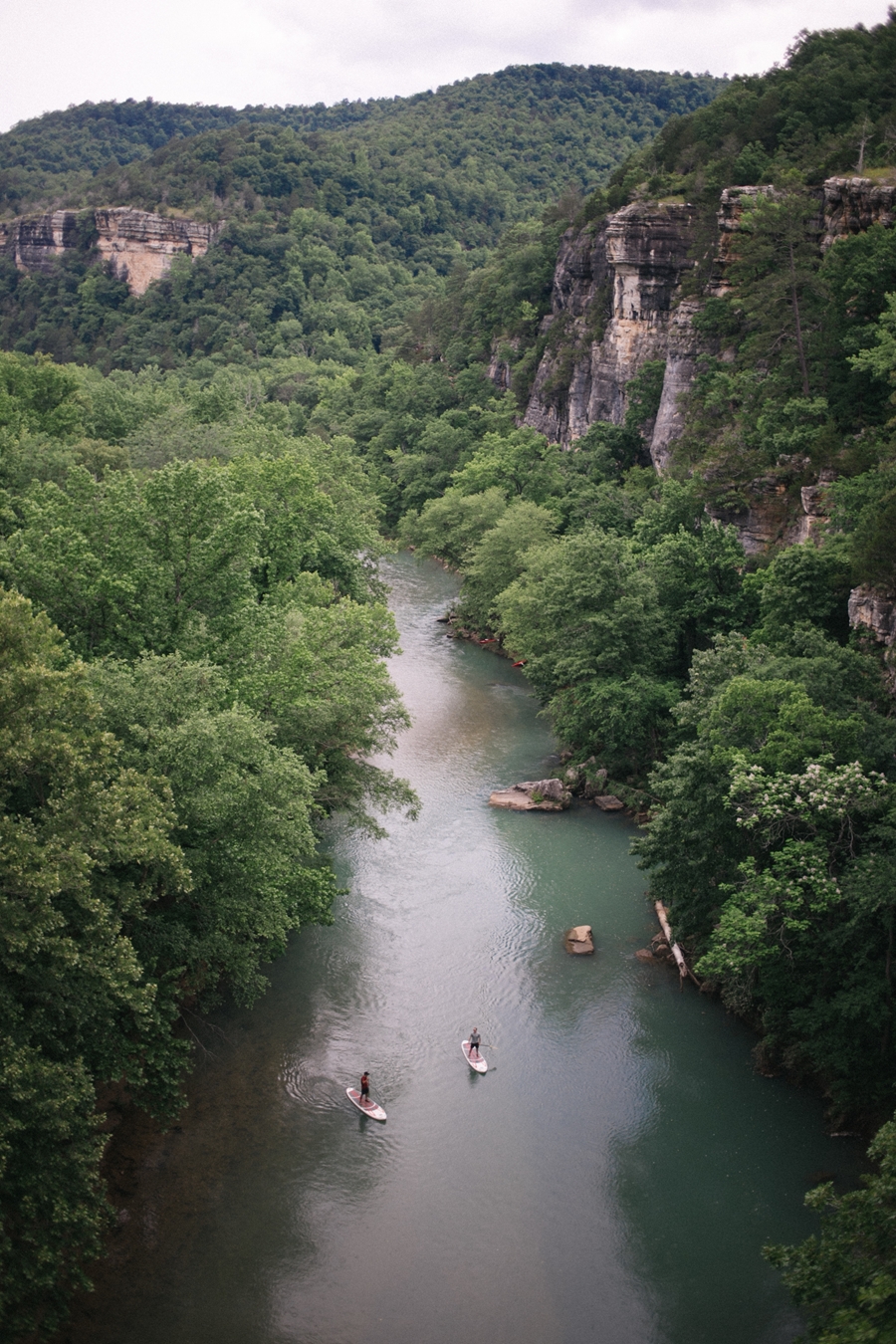With the arrival of summer in Arkansas, opportunities for outdoor exploration abound. UREC Outdoors, a program within the department of University Recreation, offers a variety of summer trips to students and UREC members including mountain biking at Slaughter Pen and stand-up paddle boarding on the Buffalo River. In addition, UREC Outdoors offers a wide variety of outdoor recreational rental equipment available for students, UREC members, and faculty/staff. More information is available at urec.uark.edu.
Whether heading out on a UREC trip or with a group of friends, individuals should remain mindful of a few safety tips provided by UREC Outdoors in order to best enjoy their recreation experience.
Check the Weather
Summer weather is often unpredictable, especially in Arkansas. Check the forecast throughout the week leading up to and the morning of the trip. Consult with the National Weather Service webpage at weather.gov to view up-to-date forecasts and inclement weather advisories. Consider the appropriate gear and clothing necessary to handle any possible situation, and bring additional layers to wear or shed during the trip.
"Be prepared. Braving the elements is an essential part of recreating outdoors," said Sydney Sotelo, UREC Outdoors intern. "But risking personal safety is not."
Establish an Emergency Action Plan
Emergency Action Plans are essential in case of an accident. They include emergency contact information, an allergy list, pertinent medical information, road access points along the trip, as well as the name, number, address of, and directions to the nearest hospital. UREC Outdoors also recommends giving a copy of the plan, along with the estimated return time, to a friend or family member prior to the trip.
Use Sunscreen
Always apply sunscreen before spending any extended period of time outdoors, and remember to reapply throughout the activity. Sunscreen needs are different for everyone based on skin sensitivity, amount of exposure, and level of physical activity.
Check for Ticks
Tick-borne illnesses are a serious health concern. Taking preventative measures is the first step toward ensuring personal safety. Insect repellants that contain DEET are effective when used in accordance with the precautions on their packaging. Full body tick checks are still essential when traveling outdoors.
Check for ticks frequently and remove them immediately. Stop by UREC Outdoors in HPER 102 to pick up a free tick removal kit. The kit can be returned post-trip to aid in University of Arkansas research monitoring tick populations in Northwest Arkansas.
Edge Awareness
Exposed cliffs and ridges are attractive to hikers, but they should always be approached with caution.
"You're taught as a climbing instructor to never turn your back to the cliff unless you're tied in," said George Bieker, UREC Outdoors graduate assistant. "I think that's a tip that can be extrapolated to a wider audience."
Modeling proper edge awareness is an easy way to stay safe and to encourage others to do the same.
Stay Hydrated
Potable water sources are not always available when recreating outdoors, so create a hydration plan ahead of time. Adequate water consumption can vary from 2-4 liters of water per person per day. Water purification systems include some of the following; iodine, pump-style filters, ultraviolet pens, and other chemical treatments. The old-fashioned boiling-water method works well, too.
"My personal favorite is Aquamira, a tasteless chemical treatment that acts fast and is easily transported," said Bieker.
Getting Lost
Prevention is the first step in avoiding getting lost while outdoors. Bring a map of the area you are visiting and become familiar with using such maps. Try to match your surroundings to your map as you hike, while also remembering to look behind you periodically. This will familiarize you with the look of the trail leading home.
If you find yourself lost, a few guidelines can help get you home safely. First, stop and gather your composure. Then, think about where you came from and where you were going. Identify any landmarks nearby and check for phone signal if on a high vantage point. Finally, when truly lost, it is usually best to stay where you are until help arrives. Three blasts on an emergency whistle is the universal signal for help. If you must move, never do so without a plan. If confident, you can backtrack to the path you were on previously.
Topics
Contacts
Mike Hoover, assistant director
University Recreation
479-575-6834,
Lindsay Smith, assistant director
University Recreation
479-575-2662,
